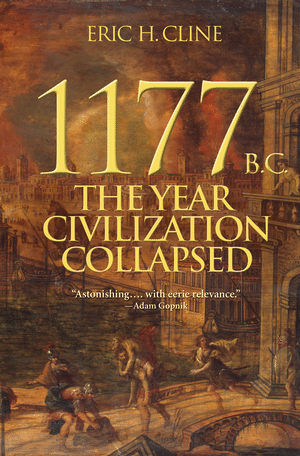I was just reading about the Mayans on Wikipedia and found it really interesting how similar their society was to the "old world" even though there was zero contact. They were an incredibly sophisticated society and developed the Maya hieroglyphic script, the only known fully developed writing system of the pre-Columbian Americas, which they started using by 300 BCE. I was very disappointed when I got to this part though.
This just made me incredibly angry. Today, we have ISIS destroying historical monuments but with the cameras and the internet, we have all the information we need from those. The Mayan history books were destroyed before anyone could even extract and record information from them. It's such a tragedy.This reminded me of another story that I read on neogaf a few weeks ago.
The Really Big One is an article about a huge earthquake that will destroy Vancouver and Seattle in the next 50 or so years. The article is really long so I'll try to summarise the relevant parts.
First here is some background info on the region.
Before this "big one" was discovered, American geologists found a ghost forest on the coast in the late 1980s. A ghost forest is a forest of dead trees, leafless, branchless and barkless. They are a smooth silver-gray colour. It was previously assumed that these specific trees died by saltwater, as the sea levels rose and submerged their roots. After discovering evidence of land sinking, one of the scientists looked at growth-ring patterns on the trees and found that all of the trees died simultaneously. They dated the death of the final tree to summer 1699. From this, they were able to conclude an earthquake occurred in Vancouver between August 1699 and May 1700 (since trees don't grow in the winter). This time frame predates written history in this region by more than a hundred years.
5,000 miles west of this ghost forest is the north eastern cost of Japan. Japan gets earthquakes and tsunamis all the time so they kept track of them since at least 599 CE. During those 1400 years, one incident stood out for its strangeness.
Now this history wasn't exactly lost, but it may as well have been since it was completely ignored until after the fact. Most Aboriginal cultures relied on oral story telling. So there are the countless stories in the Americas that were actually lost due to cultural assimilation and genocide.
I find this subject very interesting. Does anyone have any other examples of lost history?
In the 16th century, the Spanish Empire colonised the Mesoamerican region, and a lengthy series of campaigns saw the fall of the last Maya city in 1697.
https://en.wikipedia.org/wiki/Maya_civilizationThe Maya elite were literate, and developed a complex system of hieroglyphic writing that was the most advanced in the pre-Columbian Americas. The Maya recorded their history and ritual knowledge in screenfold books, of which only three uncontested examples remain, the rest having been destroyed by the Spanish.
This just made me incredibly angry. Today, we have ISIS destroying historical monuments but with the cameras and the internet, we have all the information we need from those. The Mayan history books were destroyed before anyone could even extract and record information from them. It's such a tragedy.This reminded me of another story that I read on neogaf a few weeks ago.
The Really Big One is an article about a huge earthquake that will destroy Vancouver and Seattle in the next 50 or so years. The article is really long so I'll try to summarise the relevant parts.
First here is some background info on the region.
Native Americans had lived in the Northwest for millennia, but they had no written language, and the many things to which the arriving Europeans subjected them did not include seismological inquiries. The newcomers took the land they encountered at face value, and at face value it was a find: vast, cheap, temperate, fertile, and, to all appearances, remarkably benign.
Before this "big one" was discovered, American geologists found a ghost forest on the coast in the late 1980s. A ghost forest is a forest of dead trees, leafless, branchless and barkless. They are a smooth silver-gray colour. It was previously assumed that these specific trees died by saltwater, as the sea levels rose and submerged their roots. After discovering evidence of land sinking, one of the scientists looked at growth-ring patterns on the trees and found that all of the trees died simultaneously. They dated the death of the final tree to summer 1699. From this, they were able to conclude an earthquake occurred in Vancouver between August 1699 and May 1700 (since trees don't grow in the winter). This time frame predates written history in this region by more than a hundred years.
5,000 miles west of this ghost forest is the north eastern cost of Japan. Japan gets earthquakes and tsunamis all the time so they kept track of them since at least 599 CE. During those 1400 years, one incident stood out for its strangeness.
In 1996, around ten years after the ghost forest trip, a Japanese scientists was able to put two and two together. Here's what actually happened.On the eighth day of the twelfth month of the twelfth year of the Genroku era, a six-hundred-mile-long wave struck the coast, levelling homes, breaching a castle moat, and causing an accident at sea. The Japanese understood that tsunamis were the result of earthquakes, yet no one felt the ground shake before the Genroku event. The wave had no discernible origin. When scientists began studying it, they called it an orphan tsunami.
Now what's the point in all this? The Aboriginal people already knew this for hundreds of years.At approximately nine o’ clock at night on January 26, 1700, a magnitude-9.0 earthquake struck the Pacific Northwest, causing sudden land subsidence, drowning coastal forests, and, out in the ocean, lifting up a wave half the length of a continent. It took roughly fifteen minutes for the Eastern half of that wave to strike the Northwest coast. It took ten hours for the other half to cross the ocean. It reached Japan on January 27, 1700: by the local calendar, the eighth day of the twelfth month of the twelfth year of Genroku.
Once scientists had reconstructed the 1700 earthquake, certain previously overlooked accounts also came to seem like clues. In 1964, Chief Louis Nookmis, of the Huu-ay-aht First Nation, in British Columbia, told a story, passed down through seven generations, about the eradication of Vancouver Island’s Pachena Bay people. “I think it was at nighttime that the land shook,” Nookmis recalled. According to another tribal history, “They sank at once, were all drowned; not one survived.” A hundred years earlier, Billy Balch, a leader of the Makah tribe, recounted a similar story. Before his own time, he said, all the water had receded from Washington State’s Neah Bay, then suddenly poured back in, inundating the entire region. Those who survived later found canoes hanging from the trees. In a 2005 study, Ruth Ludwin, then a seismologist at the University of Washington, together with nine colleagues, collected and analyzed Native American reports of earthquakes and saltwater floods. Some of those reports contained enough information to estimate a date range for the events they described. On average, the midpoint of that range was 1701.
Now this history wasn't exactly lost, but it may as well have been since it was completely ignored until after the fact. Most Aboriginal cultures relied on oral story telling. So there are the countless stories in the Americas that were actually lost due to cultural assimilation and genocide.
I find this subject very interesting. Does anyone have any other examples of lost history?




